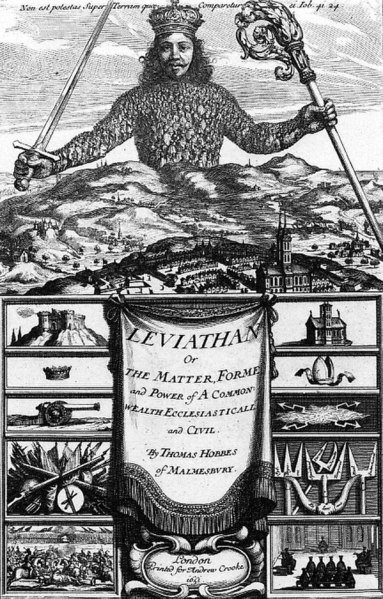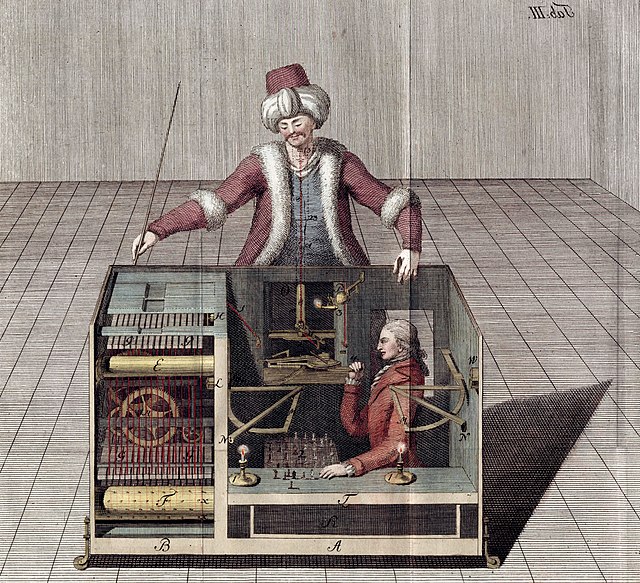Darwin's Dangerous Idea: Evolution and the Meanings of Life is a 1995 book by the philosopher Daniel Dennett, in which the author looks at some of the repercussions of Darwinian theory. The crux of the argument is that, whether or not Darwin's theories are overturned, there is no going back from the dangerous idea that design might not need a designer. Dennett makes this case on the basis that natural selection is a blind process, which is nevertheless sufficiently powerful to explain the evolution of life. Darwin's discovery was that the generation of life worked algorithmically, that processes behind it work in such a way that given these processes the results that they tend toward must be so.
Cover of the first edition
Darwin's Dangerous Idea makes extensive use of cranes as an analogy.
The frontispiece to Thomas Hobbes' Leviathan, which appears at the beginning of chapter 16 "On the Origin of Morality".
Von Kempelen's chess automaton, discussed in chapter 15.
Daniel Clement Dennett III was an American philosopher and cognitive scientist. His research centered on the philosophy of mind, the philosophy of science, and the philosophy of biology, particularly as those fields relate to evolutionary biology and cognitive science.
Dennett in 2012
Dennett in 2008






